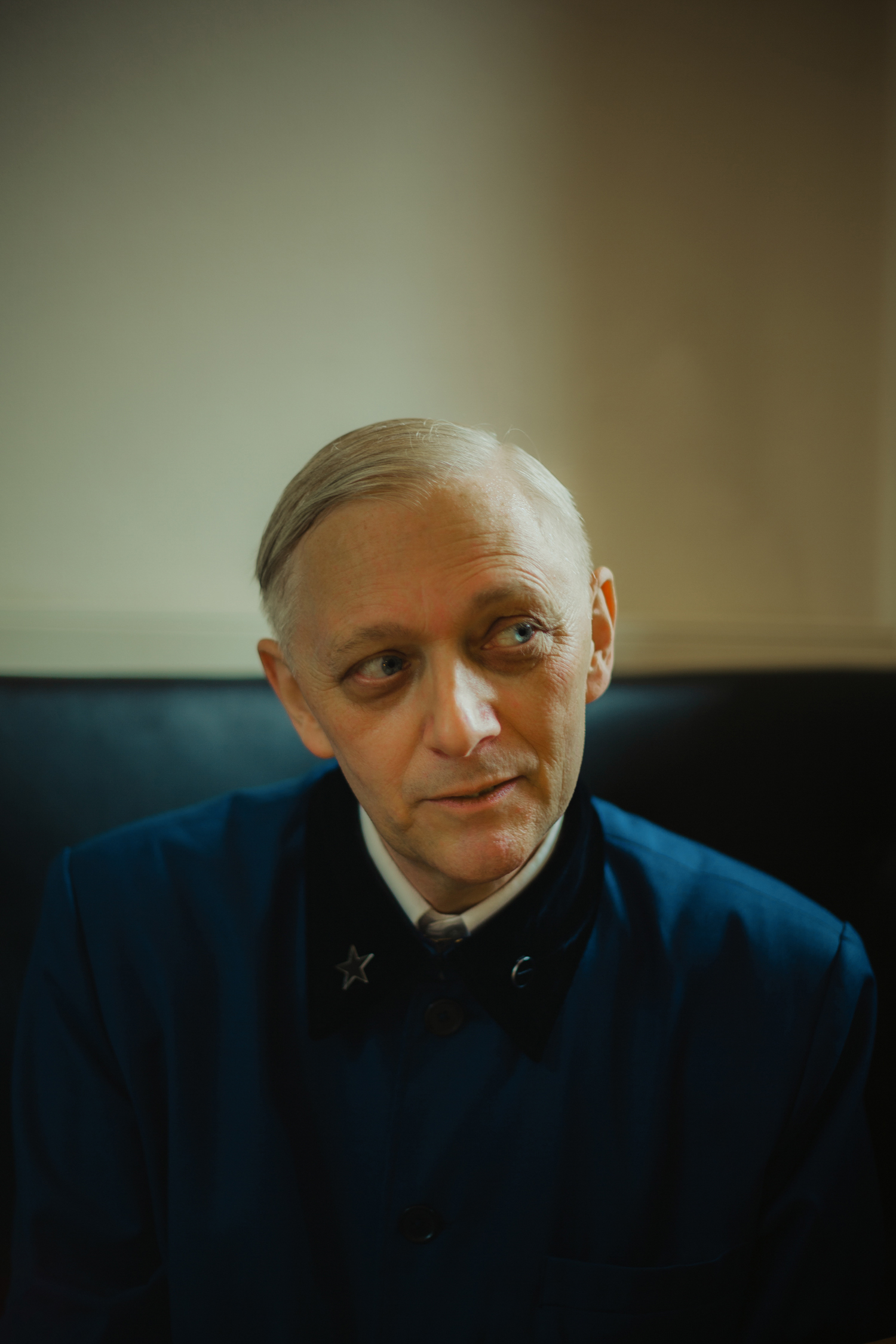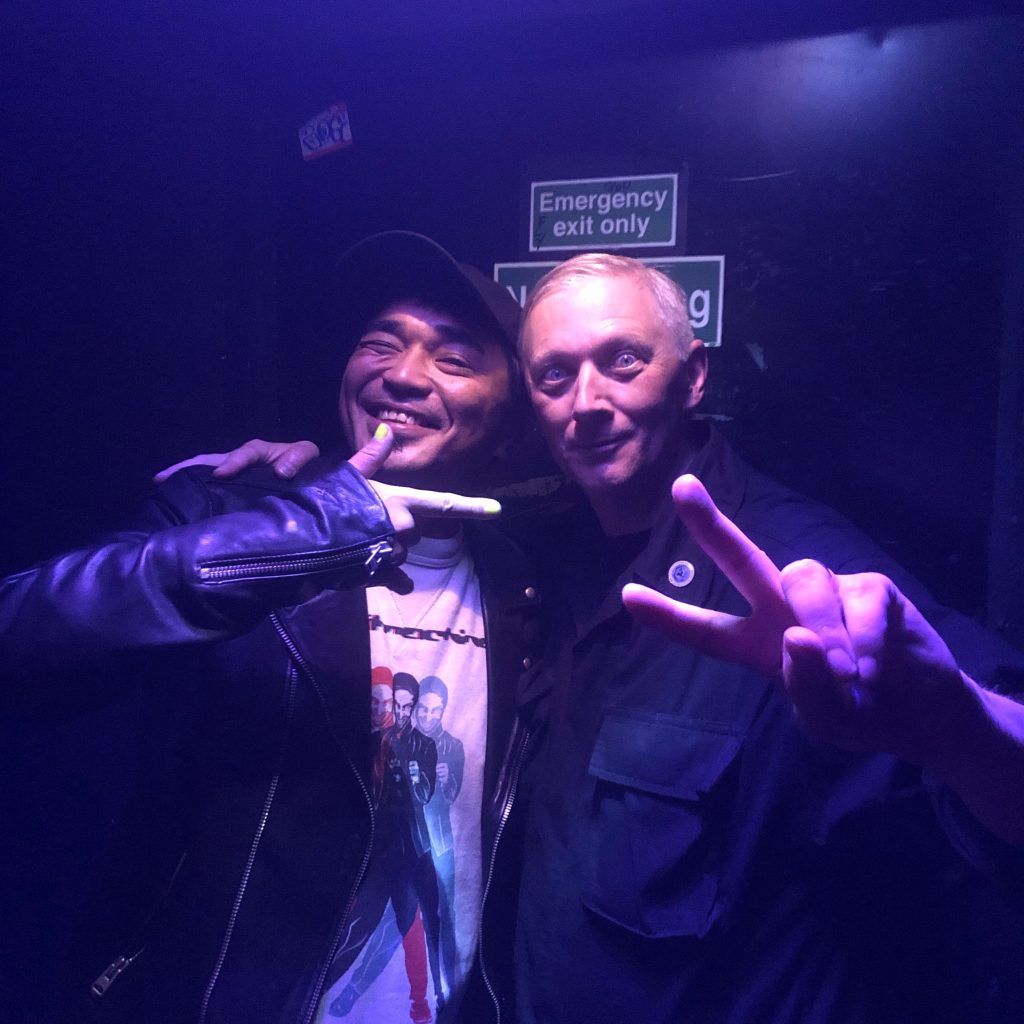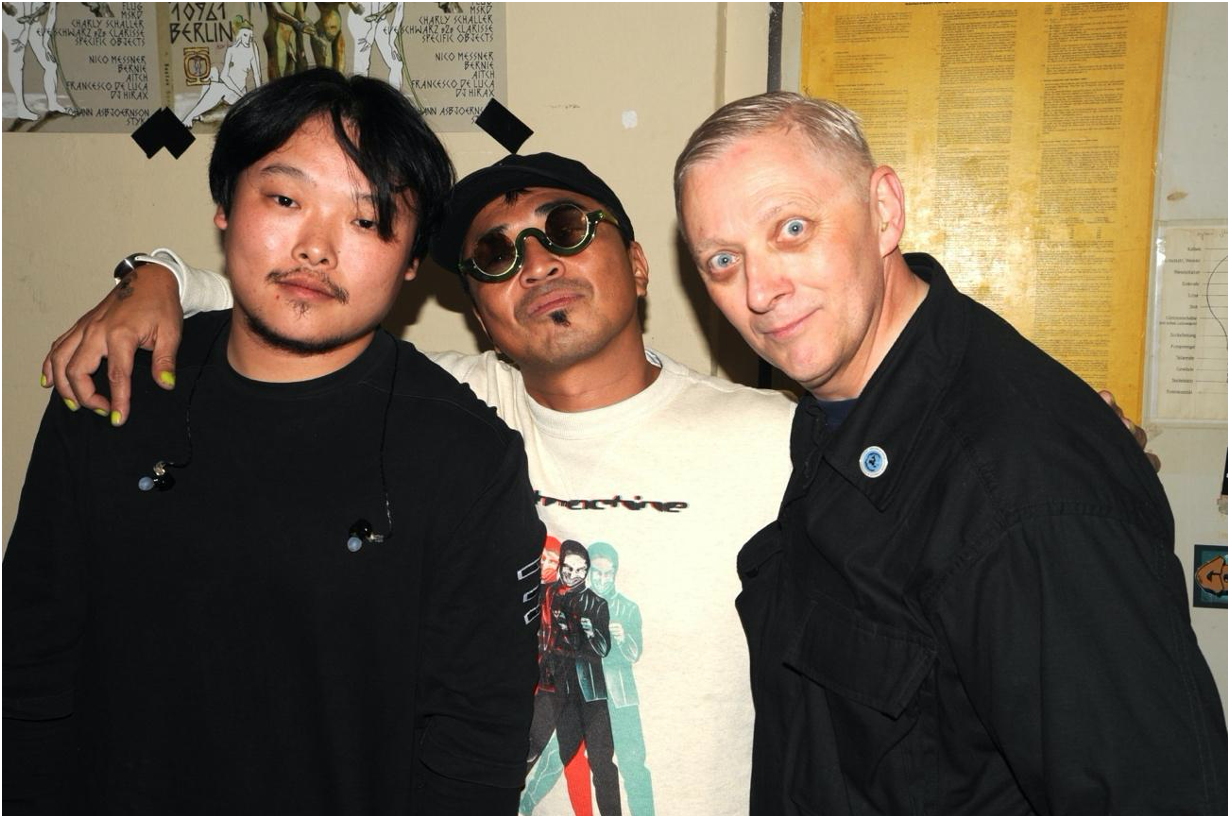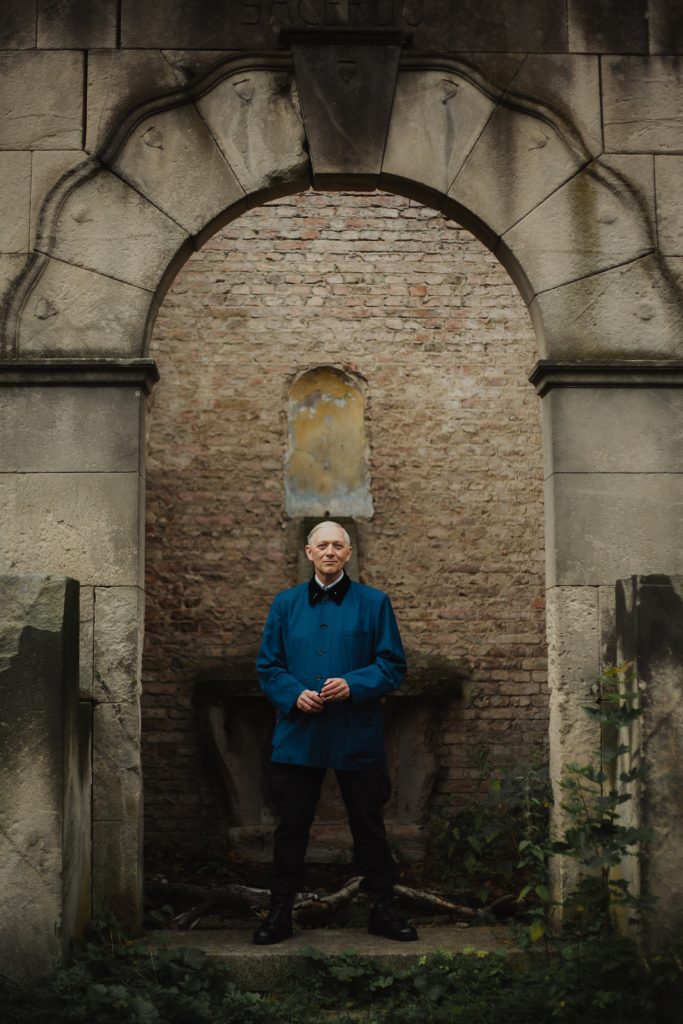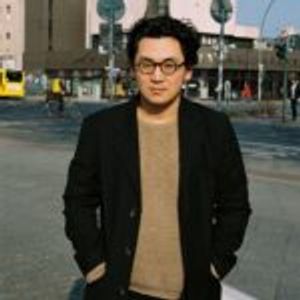While there are many music producers in the world, Mark Reeder may be the only one who has been so consistently enamored with Berlin. A skilled producer and remixer, he’s also the man who brought Nick Cave to Berlin, introduced Berlin to Denki Groove, and sat behind the scenes of New Order’s Blue Monday. These days, he’s focusing his energy on supporting Stolen, a band from China. In the latter half of this interview, we find out whether Mark has been able to continue his efforts towards blending the music culture of the world. We take a deeper look into the source of his passion and why he continues to love the city of Berlin.
“If the music is good, that becomes your credentials.”: Mark’s thoughts on introducing Takkyu to the Berlin music scene
――A lot of Japanese techno fans know that Mijk van Dijk remixed Denki Groove’s Niji, and that you were the one to release it in Germany. Could you tell us a bit more about how that happened?
Mark Reeder: I knew Mijk was interested in Japan, so I sent him to Japan on the label’s budget. Then, I was listening to CDs of Japanese music that he brought back to Berlin, and one of them was Denki Groove. Honestly, it was fantastic. Because Denki was signed to Sony, I didn’t think they’d allow me to license it in Germany. But I thought, Maybe if we make remixes, they’ll let us release those. So I asked Sony, and they said, “We’ll have to ask German Sony first and see if they want to release it.” I knew German Sony wasn’t even going to consider releasing this record themselves. And that’s exactly what happened. They weren’t interested at all, so it was fine. Thanks to that, Mijk van Dijk was able to make a remix of Niji. We were able to present a different culture and style to our audience, through the more familiar filter of Mijk van Dijk. Later, German Sony asked, “Is there something we can do to help?” but I just ignored them.
――And that was around the time that Takkyu Ishino performed at Love Parade, right?
Mark: Yeah. I did the first party with Takkyu at E-Werk in 1996. And I think a few years later, he was invited to play at Love Parade. Actually, Takkyu played in Germany for the first time at my party. I had just released his remix record, so for us, the next step was to put him on stage and let people hear what he could do. And everyone was really wowed by his exotic performance. Not many Japanese DJs had played in Berlin before that. But I invited him because I knew how he played, even though no one else did. I knew if he played at my parties, and then he wouldn’t have to convince people of who he was. If the music is good, that becomes your credentials.
――Hearing your stories, I feel like there’s a common thread throughout your whole career.
Mark: That’s true. All these things are connected. I worked in a record shop when I was younger, and being introduced to different music styles and approaches changed my life. That’s why I thought it was really important to give Takkyu and Denki Groove the opportunity to be able to present themselves here. If they hadn’t had that opportunity, people here would never have had the chance to know Ken Ishii and people from Japan’s music scene. They’d be focused only on German techno and Detroit techno. I think if they weren’t given a chance, these people making interesting music wouldn’t have had many good opportunities.
I started my record label, MFS, in Berlin purely to give these kids in East Germany the opportunity to be able to present themselves. And having this opportunity to do a label only happened because I was in East Germany before the wall came down, and I met all these people from the state-owned record label of East Germany, who released these records by official East German artists. After the reunification, they suddenly had the opportunity to do something completely free, not chained to the state anymore. When I think back to these decades, it gives me motivation.
――Why did you have such a passion for developing Berlin’s music culture?
Mark: I didn’t want the youth living in East Germany at that time, the people who weren’t given opportunities for various reasons, to think that they were second-class citizens without culture. There were differences between East and West Berlin, but for me, Berlin had always been one place. And I know how it feels to be in that situation, because the environment I grew up in was similar. I came from a very poor family. I grew up in a state-owned council house on the end of the city, far away, where education was not a consideration. The minute you didn’t have to go to school, you got a job. So there wasn’t such a big difference between my life as a teen and the lives of the people in East Germany. I felt that I could understand their lives, their lifestyle, their struggles.
And that extended to Czechoslovakia and other [Eastern Bloc] countries. In China, where the band I support, Stolen, lives, they’re also really creative and they don’t even know it. If you give them the opportunity and the encouragement, they grow and get better. As a producer, I feel really quite privileged to have this opportunity.
The upcoming 2022 Love Parade and Mark’s unchanging expectations for Berlin
―― Do you think you’ve been influenced by the fact that you’re still living in Berlin?
Mark: Maybe like a year or two ago, I would have said no. But now, I think wearing a mask and getting vaccinated has become a political issue. And the strange thing is, you see Neo-Nazis and hippies participating in the same demonstrations against vaccinations and masks. Normally, you would never get these two groups talking, let alone walking with each other.
――I noticed that too.
Mark: Honestly, I find it rather frightening. Normally, everyone was divided by all kinds of opinions like, “I hate foreigners” or “I hate Nazis,” but now they’ve all become amalgamated under one common cause. These totalitarian demonstrations show just how easily people can be manipulated and united under one religion, which in this case, is, “No vaccination, no mask.” But for me, Berlin is still the same place. You know, it’s changed in appearance, but it still attracts the same kind of people.
――Next year, Berlin’s Love Parade is set to return. What do you think that will be like?
Mark: It all depends on how people treat this pandemic. If people don’t wear masks and get vaccinated, there won’t be a Love Parade next year. But I think the Love Parade is essential for the city. For many people who visited Berlin in the 90s, they came for Love Parade and went, “Oh, I want to live here.” It’s the only city where you can dance freely in the streets or dress however you like without worrying about what others think. If you live in some little village, you can’t just wear makeup and dresses without being an outcast. In some places, they’d put you in jail. But you can do that in Berlin. And that’s what makes Berlin special.
――That must be why you still live in Berlin.
Mark: Right. And as the world becomes more authoritarian, the freedom in Berlin becomes more significant and attractive. Because right now, we’re all desperate to break out and go to the club, right? Just clubbing alone made this city 1.4 billion euros. When you include hotels and restaurants and everything, that’s a big loss over two years.
――So are you saying that it’s up to us to create the future that we’ve been waiting for?
Mark: Right. And I hope that we’ll celebrate this release from corona with Love Parade. Because the message of that parade is to transport love and peace and unity throughout the whole world. It’s a place to promote the message of being united through music. There’s fighting everywhere—you know, Afghanistan, Syria, those places. So it’s nice to send out a positive message that we all can identify with. I think that’s a really important message that Berlin can send out to the world. We know how to live with love and peace and understanding. That’s why things like this pandemic, where you’ve got Nazis and hippies walking together and protesting [against the vaccine], kind of puts this jagged wall between them and us. So we need to be careful.
――Lastly, do you have any goals for the future?
Mark: I’m a collector, and part of why I like to collect music is because of its historical value. But I think the most important thing is to motivate kids with a vague dream about doing something to try something for themselves. Today, it isn’t as difficult to get started as it used to be. The younger generation might have an idea that we’ve never heard yet, and they might be dreaming about how they’d love to do something. But if you don’t do it, you’ll never know. So it’s about motivating those kids to do it, and maybe if it doesn’t work, try again, and keep trying until it feels right. And then you might have a revelation on your hands of some music you never knew existed.
For example, the kids who were 15 to 18 when the pandemic started were having parties at home, so they’ve never heard music playing really loudly at a club. And they might not get the chance to go to a club for another year or two. So how is their mindset? What do they think? Imagine what they’ll feel and create that very first time they go into a club and hear super loud music. I’m very excited to hear what the post-lockdown generation makes.
Mark Reeder
Born in Manchester, Mark Reeder moved to Berlin in 1978. In addition to forming his own new wave band and working as a musician, he was also the manager of the Berlin all-girl avant-garde group Malaria!. As the German Representative for Factory Records, he worked as a tour manager for bands such as New Order. In 1990, he founded the electronic dance music label MFS, and he was deeply involved in the dawn of the Berlin techno scene. In addition to supporting the careers of young artists like Paul van Dyk and Mijk Van Dijk, he was also involved in inviting Japanese artists like Denki Groove and Takkyu Ishino to Berlin. In 2008, he resumed making his own music, remixing Depeche Mode, Pet Shop Boys, and New Order, as well as composing music for films and commercials. The feature-length documentary, “B-Movie: Lust & Sound in West Berlin, which details his experience in West Berlin in the 80s, was released in 2015.
Instagram:@markreeder.mfs
Bandcamp:@Mark Reeder
Direction Kana Miyazawa
Photography Chihiro Lia Ottsu
Translation Aya Apton

